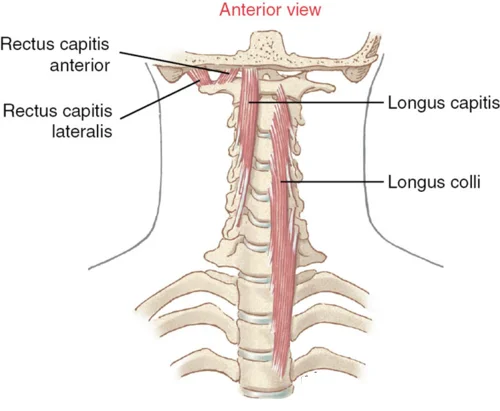DUTIES OF PHYSIOTHERAPY (DOCTOR)
- Doctors make an important contribution to the management and leadership of health services and the delivery of healthcare across the UK as part of a multidisciplinary team. All doctors have some responsibilities for using resources; many will also lead teams or be involved in supervising colleagues.
- The primary duty of all doctors is for the care and safety of patients. Whatever their role, doctors must do the following.
- a.)Engage with colleagues to maintain and improve the safety and quality of patient care.
b.)Contribute to discussions and decisions about improving the quality of services and outcomes.
c.) Raise and act on concerns about patient safety.
d.) Demonstrate effective team working and leadership.
e.) Promote a working environment free from unfair discrimination, bullying, and harassment, bearing in mind that colleagues and patients come from diverse backgrounds.
f.) Contribute to teaching and training doctors and other healthcare professionals, including by acting as a positive role model.
g.) Use resources efficiently for the benefit of patients and the public.
# Patients must be able to trust doctors with their lives and health. To justify that trust you must show respect for human life and make sure your practice meets the standards expected of you in four domains.
- Knowledge, skills, and performance:
Make the care of your patient your first concern.
Provide a good standard of practice and care.
– Keep your professional knowledge and skills up to date.
– Recognise and work within the limits of your competence. - Safety and quality:
Take prompt action if you think that patient safety, dignity, or comfort is being compromised.
Protect and promote the health of patients and the public. - Communication, partnership, and teamwork:
1. Treat patients as individuals and respect their dignity.
– Treat patients politely and considerately.
– Respect patients’ right to confidentiality.
2. Work in partnership with patients.
– Listen to, and respond to, their concerns and preferences.
– Give patients the information they want or need in a way they can understand.
– Respect patients’ right to reach decisions with you about their treatment and care.
– Support patients in caring for themselves to improve and maintain their health.
3. Work with colleagues in the ways that best serve patients’ interests. - Maintaining trust:
Be honest and open and act with integrity.
Never discriminate unfairly against patients or colleagues.
Never abuse your patients’ trust in you or the public’s trust in the profession. - You are personally accountable for your professional practice and must always be prepared to justify your decisions and actions…
# PROFESSIONALISM IN ACTION :
- Patients need good doctors. Good doctors make the care of their patients their first concern: they are competent, keep their knowledge and skills up to date, establish and maintain good relationships with patients and colleagues, are honest and trustworthy, and act with integrity and within the law.
2. Good doctors work in partnership with patients and respect their rights to privacy and dignity. They treat each patient as an individual. They do their best to make sure all patients receive good care and treatment that will support them to live as well as possible, whatever their illness or disability.
3. Good medical practice describes what is expected of all doctors registered with the General Medical Council (GMC). It is your responsibility to be familiar with Good medical practice and the explanatory guidance2 which supports it, and to follow the guidance they contain.
4. You must use your judgement in applying the principles to the various situations you will face as a doctor, whether or not you hold a licence to practise, whatever field of medicine you work in, and whether or not you routinely see patients. You must be prepared to explain and justify your decisions and actions.
5. In Good medical practice, we use the terms ‘you must’ and ‘you should’ in the following ways.
- ‘You must’ is used for an overriding duty or principle.
- ‘You should’ is used when we are providing an explanation of how you will meet the overriding duty.
- ‘You should’ is also used where the duty or principle will not apply in all situations or circumstances, or where there are factors outside your control that affect whether or how you can follow the guidance.
6. To maintain your licence to practise, you must demonstrate, through the revalidation process, that you work in line with the principles and values set out in this guidance. Serious or persistent failure to follow this guidance will put your registration at risk.
# Develop and maintain your professional performance:
- You must be competent in all aspects of your work, including management, research, and teaching.
- You must keep your professional knowledge and skills up to date.
- You must regularly take part in activities that maintain and develop your competence and performance.6
- You should be willing to find and take part in structured support opportunities offered by your employer or contracting body (for example, mentoring). You should do this when you join an organization and whenever your role changes significantly throughout your career.
- You must be familiar with guidelines and developments that affect your work.
- You must keep up to date with, and follow, the law, our guidance, and other regulations relevant to your work.
- You must take steps to monitor and improve the quality of your work.
# Apply knowledge and experience to practice:
- You must recognize and work within the limits of your competence.
- You must have the necessary knowledge of the English language to provide a good standard of practice and care in the UK.
- You must provide a good standard of practice and care. If you assess, diagnose or treat patients, you must:
- a.) adequately assess the patient’s conditions, taking account of their history (including the symptoms and psychological, spiritual, social, and cultural factors), their views and values; where necessary, examine the patient
b.) promptly provide or arrange suitable advice, investigations, or treatment where necessary
c.) refer a patient to another practitioner when this serves the patient’s needs. - In providing clinical care you must:
- a.) prescribe drugs or treatment, including repeat prescriptions, only when you have adequate knowledge of the patient’s health and are satisfied that the drugs or treatment serve the patient’s needs
b.) provide effective treatments based on the best available evidence
c.) take all possible steps to alleviate pain and distress whether or not a cure may be possible
d.) consult colleagues where appropriate
e.) respect the patient’s right to seek a second opinion
f.) check that the care or treatment you provide for each patient is compatible with any other treatments the patient is receiving, including (where possible) self-prescribed over-the-counter medications
g.) wherever possible, avoid providing medical care to yourself or anyone with whom you have a close personal relationship. - You must be satisfied that you have consent or other valid authority before you carry out any examination or investigation, provide treatment or involve patients or volunteers in teaching or research.
- You must make good use of the resources available to you.
# Record your work clearly, accurately, and legibly:
- Documents you make (including clinical records) to formally record your work must be clear, accurate, and legible. You should make records at the same time as the events you are recording or as soon as possible afterward.
- You must keep records that contain personal information about patients, colleagues, or others securely, and in line with any data protection law requirements.14
- Clinical records should include:
- a.) relevant clinical findings
b.) the decisions made and actions agreed upon, and who is making the decisions and agreeing the actions
c.) the information is given to patients
d.) any drugs prescribed or other investigation or treatment
e.) who is making the record and when.
# Contribute to and comply with systems to protect patients:
- You must take part in systems of quality assurance and quality improvement to promote patient safety. This includes:
- a.) taking part in regular reviews and audits of your own work and that of your team, responding constructively to the outcomes, taking steps to address any problems, and carrying out further training where necessary
b.) regularly reflecting on your standards of practice and the care you provide
c.) reviewing patient feedback where it is available. - To help keep patients safe you must:
- a.) contribute to confidential inquiries
b.) contribute to adverse event recognition
c.) report adverse incidents involving medical devices that put or have the potential to put the safety of a patient, or another person, at risk
d.) report suspected adverse drug reactions
e.) respond to requests from organisations monitoring public health. When providing information for these purposes you should still respect patients’ confidentiality.
# Respond to risks to safety:
- You must promote and encourage a culture that allows all staff to raise concerns openly and safely.
- You must take prompt action if you think that patient safety, dignity or comfort is or may be seriously compromised.
a.) If a patient is not receiving basic care to meet their needs, you must immediately tell someone who is in a position to act straight away.
b.) If patients are at risk because of inadequate premises, equipment, or other resources, policies, or systems, you should put the matter right if that is possible. You must raise your concern in line with our guidance and your workplace policy. You should also make a record of the steps you have taken.
c.) If you have concerns that a colleague may not be fit to practice and maybe putting patients at risk, you must ask for advice from a colleague, your defense body, or us. If you are still concerned you must report this, in line with our guidance and your workplace policy, and make a record of the steps you have taken.
3. You must offer help if emergencies arise in clinical settings or in the community, taking into account your own safety, your competence, and the availability of other options for care.
4. Whether or not you have vulnerable adults or children and young people as patients, you should consider their needs and welfare and offer them help if you think their rights have been abused or denied.
# Risks posed by your health:
- If you know or suspect that you have a serious condition that you could pass on to patients, or if your judgement or performance could be affected by a condition or its treatment, you must consult a suitably qualified colleague. You must follow their advice about any changes to your practice they consider necessary. You must not rely on your own assessment of the risk to patients.
- You should be immunised against common serious communicable diseases (unless otherwise contraindicated).
- You should be registered with a general practitioner outside your family.
# Communicate effectively:
- You must listen to patients, take account of their views, and respond honestly to their questions.
- You must give patients20 the information they want or need to know in a way they can understand. You should make sure that arrangements are made, wherever possible, to meet patients’ language and communication needs.
- You must be considerate to those close to the patient and be sensitive and responsive in giving them information and support.
- When you are on duty you must be readily accessible to patients and colleagues seeking information, advice or support.
# Working collaboratively with colleagues:
- You must work collaboratively with colleagues, respecting their skills and contributions.3
- You must treat colleagues fairly and with respect.
- You must be aware of how your behaviour may influence others within and outside the team.
- Patient safety may be affected if there is not enough medical cover. So you must take up any post you have formally accepted, and work your contractual notice period before leaving a job, unless the employer has reasonable time to make other arrangements.
# Teaching, training, supporting, and assessing:
- You should be prepared to contribute to teaching and training doctors and students.
- You must make sure that all staff you manage have appropriate supervision.
- You must be honest and objective when writing references, and when appraising or assessing the performance of colleagues, including locums and students. References must include all information relevant to your colleagues’ competence, performance, and conduct.
- You should be willing to take on a mentoring role for more junior physiotherapists, doctors, and other healthcare professionals.
- You must support colleagues who have problems with their performance or health. But you must put patient safety first at all times.
# Continuity and coordination of care:
- You must contribute to the safe transfer of patients between healthcare providers and between health and social care providers. This means you must:
- a.) share all relevant information with colleagues involved in your patients’ care within and outside the team, including when you hand over care as you go off duty, and when you delegate care or refer patients to other health or social care providers.
b.) check, where practical, that a named clinician or team has taken over responsibility when your role in providing a patient’s care has ended. This may be particularly important for patients with impaired capacity or who are vulnerable for other reasons. - When you do not provide your patients’ care yourself, for example when you are off duty, or you delegate the care of a patient to a colleague, you must be satisfied that the person providing care has the appropriate qualifications, skills, and experience to provide safe care for the patient.
# Establish and maintain partnerships with patients:
- You must be polite and considerate.
- You must treat patients as individuals and respect their dignity and privacy.
- You must treat patients fairly and with respect whatever their life choices and beliefs.
- You must work in partnership with patients, sharing with them the information they will need to make decisions about their care, including:
- a.) their condition, its likely progression, and the options for treatment, including associated risks and uncertainties
b.) the progress of their care, and your role and responsibilities in the team
c.) who is responsible for each aspect of patient care, and how information is shared within teams and among those who will be providing their care
d.) any other information patients need if they are asked to agree to be involved in teaching or research. - You must treat information about patients as confidential. This includes after a patient has died.
- You must support patients in caring for themselves to empower them to improve and maintain their health. This may, for example, include:
- a.) advising patients on the effects of their life choices and lifestyle on their health and well-being
b.) supporting patients to make lifestyle changes where appropriate. - You must explain to patients if you have a conscientious objection to a particular procedure. You must tell them about their right to see another doctor and make sure they have enough information to exercise that right. In providing this information you must not imply or express disapproval of the patient’s lifestyle, choices, or beliefs. If it is not practical for a patient to arrange to see another doctor, you must make sure that arrangements are made for another suitably qualified colleague to take over your role.
# Show respect for patients:
- You must not use your professional position to pursue a sexual or improper emotional relationship with a patient or someone close to them.
- You must not express your personal beliefs (including political, religious, and moral beliefs) to patients in ways that exploit their vulnerability or are likely to cause them distress.
- You must be open and honest with patients if things go wrong. If a patient under your care has suffered harm or distress, you should:
- a.) put matters right (if that is possible)
b.) offer an apology
c.) explain fully and promptly what has happened and the likely short-term and long-term effects.
# Honesty in financial dealings:
- You must be honest in financial and commercial dealings with patients, employers, insurers and other organisations or individuals.
- You must not allow any interests you have to affect the way you prescribe for, treat, refer or commission services for patients.
- If you are faced with a conflict of interest, you must be open about the conflict, declaring your interest formally, and you should be prepared to exclude yourself from decision making.
- You must not ask for or accept – from patients, colleagues or others – any inducement, gift or hospitality that may affect or be seen to affect the way you prescribe for, treat or refer patients or commission services for patients. You must not offer these inducements.
- You must make sure that your conduct justifies your patients’ trust in you and the public’s trust in the profession.





